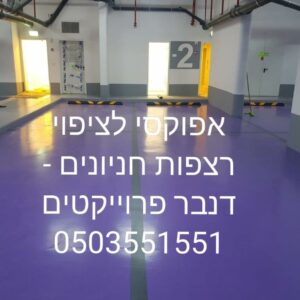Denber – floor coating using epoxy and polyurethane – find out what is suitable for you epoxy floor or polyurethane floor

Denber – floor coating using epoxy and polyurethane – find out what is suitable for you epoxy floor or polyurethane floor
Epoxy or polyurethane
Types of floor coverings:
- Epoxy – (polyepoxide) is a thermostatic polymer that polymerizes with a polyamine hardener in epoxy systems for non-volatile casting. At the end of its hardening it forms a hard mass and very hard to withstand abrasion and scratches. The material is used for a wide variety of them, for coating floors and work surfaces, stair coatings, and also for various castings, including tables and jewelry. Its high hardness even allows it to be machined. 100% solid floor epoxy flooring.
- Polyurethane – This is an amazing material in its flexibility and rigidity, in the production options, the stability of the material in the production that can come in the form of paints, casting and spreading liquids, thick pastes in hundreds and thousands of applications in a variety of fields.
Polyurethane foam can be hard as steel, can be crushed as a sponge padding, shielded and guarded like lacquer, bouncy like rubber wheels or sticky like glue. - Hybrid Polyurethane Epoxy – A combination of epoxy and polyurethane allows for an advantage, thus maintaining the strength of the epoxy with the flexibility of the polyurethane.



Stronger than any epoxy
For industrial floor coatings where forklifts and cargo moves, for shaded gas stations and underground car parks, the hard epoxy coating is the ultimate and relatively inexpensive coating and therefore the most common.
But for those who want a harder and more abrasion-resistant coating, the more suitable coating is 100% solid polyurethane for casting hard floors. Polyurethane is a 50% more durable material than epoxy. Its hardness is the same but the advantage of a polyurethane coating whose flexibility is maintained forever, while an epoxy coating continues to harden until it becomes brittle. Therefore the service life of epoxy is shorter than that of rigid polyurethane for floors.
A notable advantage of polyurethane over epoxy is in impact. For example:
an iron rod weighing 10 kg falling from a height of 1 meter on an epoxy floor, will cause a spot fracture and sometimes a large fracture, and lifting a surface of 1 m2 of epoxy coating from the floor around the fracture, at this point advanced destruction of the entire floor coating begins.
The same iron rod in the same fall on a flexible polyurethane floor can cause spot damage at the site of the fall only. There will be no elevation of floor areas around and no disintegration process of the entire floor.
In gyms, in rooms with machines the flexibility of the floor covering is required, to prevent bodily injury during a fall, or floor cracking from engine vibrations, the correct floor covering is the flexible polyurethane coating. It is also 100% solid but flexible like a rubber and in the event of a fall other than an epoxy floor will prevent serious injury to the falling body. In gyms it will stop falling weights on the floor and even absorb the noise.
Stronger than any epoxy
When it comes to floor coverings for cold rooms and deep freezing, there is a thermo-polyurethane coating for thermal insulation and flexibility that allows the coating to expand and shrink according to the extreme temperatures. Epoxy coating is not suitable for freezing temperatures where it cracks.
And lastly, polyurethane epoxy hybrid – it is a hybrid of epoxy with polyurethane that creates epoxy with flexibility to compensate for the shortcoming of the epoxy. Used for various coatings of concrete elements, is not popular for floor coverings due to imperfect finish and sensitivity to moisture during use.
For more information and free consultation please contact us.
web site: denber
 English
English עברית
עברית Русский
Русский